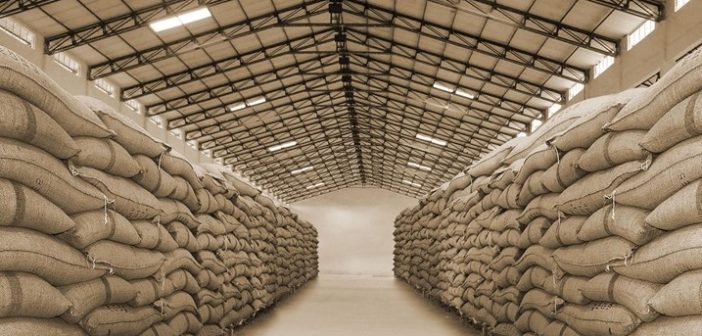The Government of India has undertaken a transformative initiative to revolutionize agricultural infrastructure by launching the “World’s Largest Grain Storage Plan in the Cooperative Sector.” Approved on May 31, 2023, this ambitious plan is being rolled out as a pilot project and aims to create cutting-edge agri-infrastructure at the grassroots level through Primary Agricultural Credit Societies (PACS). The initiative includes the construction of godowns, custom hiring centers, and processing units, utilizing the convergence of multiple existing government schemes. Notable schemes integrated into the project include the Agriculture Infrastructure Fund, the Agricultural Marketing Infrastructure Scheme, the Sub Mission on Agricultural Mechanization, and the Pradhan Mantri Formalization of Micro Food Processing Enterprises Scheme.
As part of the pilot phase, grain storage godowns have been successfully constructed in 11 PACS across 11 states, collectively adding a decentralized storage capacity of 9,750 metric tons. The states and PACS involved include Maharashtra (Amravati), Uttar Pradesh (Mirzapur), Madhya Pradesh (Balaghat), Gujarat (Ahmedabad), Tamil Nadu (Theni), Rajasthan (Sri Ganganagar), Telangana (Karimnagar), Karnataka (Bidar), Tripura (Gomati), Assam (Kamrup), and Uttarakhand (Dehradun). Individual capacities of these godowns range from 250 metric tons to 3,000 metric tons, with Maharashtra’s PACS in Amravati boasting the highest capacity.
Beyond these completed projects, the government has already laid the foundation stones for 500 additional PACS under this pilot initiative. Altogether, 575 PACS have been identified across several states and union territories for future development under the project. Maharashtra leads with 258 identified PACS, followed by Rajasthan with 100 and Odisha with 78. The long-term goal of the Ministry of Cooperation includes the establishment of 200,000 multi-purpose cooperative societies, encompassing PACS, dairy, and fishery cooperatives, to ensure comprehensive rural coverage across India’s panchayats and villages.
To streamline the establishment and management of PACS, the government has released a “Margdarshika” (Standard Operating Procedure). In Karnataka alone, 128 PACS have already been formed, with a target of 218 by the financial year 2028-2029. Among the completed projects is a 1,000 metric ton godown in Karnataka’s Bidar district, which underscores the state’s commitment to advancing rural agricultural infrastructure.
The broader objectives of this revolutionary project include reducing food grain wastage through increased decentralized storage capacity, ensuring food security for the country, and minimizing the cost of transporting food grains. The creation of godowns within PACS allows these societies to function as procurement centers as well as Fair Price Shops, eliminating the need for multiple stages of transportation and warehousing. Furthermore, the plan is designed to prevent distress sales of crops, enabling farmers to secure better market prices.
This ambitious effort, detailed by the Minister of Cooperation in a written response to a parliamentary query, represents a significant step forward in strengthening the nation’s agricultural supply chain and enhancing rural economies. By integrating modern infrastructure with cooperative frameworks, the initiative aims to empower farmers, promote sustainable agricultural practices, and contribute to India’s food security and economic resilience on an unprecedented scale.





